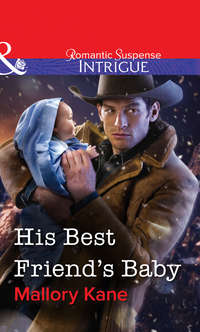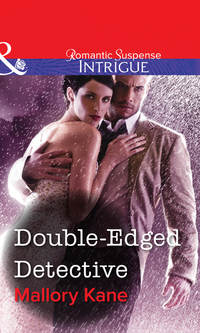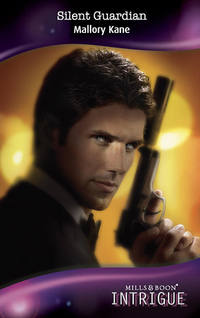
Полная версия
Death of a Beauty Queen


“I don’t remember ever being held, being kissed.” Tears welled in her eyes. “How can I not remember anything?”
“I don’t know.” The thought that he’d been the first man in her memory to touch her lips with his was so erotic and at the same time so humbling.
He touched her shoulder and she stepped into his arms again. He nuzzled her silky, sweet-smelling hair. “The theory of amnesia is that you’re blocking out memories that are too painful or too awful to deal with. It’s called dissociative amnesia. It’s generally caused by a traumatic event.”
Her hand went to her temple. He wasn’t sure if she was touching the scar or massaging a headache.
“I promise you. I’m going to find out who did this to you and I’m going to make sure he pays.”
About the Author
MALLORY KANE has two very good reasons for loving reading and writing. Her mother was a librarian, who taught her to love and respect books as a precious resource. Her father could hold listeners spellbound for hours with his stories. He was always her biggest fan.
She loves romantic suspense with dangerous heroes and dauntless heroines, and enjoys tossing in a bit of her medical knowledge for an extra dose of intrigue. After twenty-five books published, Mallory is still amazed and thrilled that she actually gets to make up stories for a living.
Mallory lives in Tennessee with her computer-genius husband and three exceptionally intelligent cats. She enjoys hearing from readers. You can write her at mallory@mallorykane.com.
Death of a Beauty Queen
Mallory Kane

www.millsandboon.co.uk
I dedicate this book to the people of New Orleans: their hearts, their courage, their indestructible optimism.
Laissez les bon temps rouler!
Prologue
Twelve Years Ago
It was an ugly crime scene. Not that newly appointed Detective Dixon Lloyd had seen many—none as a detective, but this one was worse than most. He could tell by the other officers’ faces.
Blood was smeared on walls, on floors, on the snow-white sheets on the young woman’s bed. A terry cloth robe’s sash had been cut in two and tied to the two headboard posts. Dixon grimaced as his stomach churned.
He stepped into the bathroom, which didn’t help his queasiness. Water filled the large spa tub about two-thirds full. A glass of white wine sat on the imported Italian tile surrounding the tub and a pale ivory candle had burned down to the wick.
The room appeared ready for the beauty to sweep in, slide an elegant dressing gown off her shoulders and sink into the warm, pleasantly scented water.
Only the water wasn’t warm or pleasantly scented. It was cold. And red. Bloodred.
Dixon’s gaze zeroed in on the smeared handprint on the tile near the glass. She must have reached for it, hoping to break it and use it as a weapon. But the smear stopped two inches from the base of the glass. She hadn’t been quick enough. He swallowed acrid saliva as a vision of what must have happened rose in his brain. He tried to concentrate on searching for anything unusual about the scene, other than the obvious.
“—make of it?” It was the voice of his partner and mentor, veteran detective James Shively, talking to the crime scene investigators in the bedroom.
“Hard to say,” the CSI replied. “There’s blood smeared everywhere, but the only spatter is on the bed. I’d guess he used a slender blade.”
“Yeah,” Shively said. “How much blood are we talking about?”
“With the blood in the bathwater and who knows how much down the drain, not to mention all this rain going down the sewer drains, too, it’s going to be hard to tell.”
Dix looked back at the tub. Down the drain. The killer must have surprised her in the bedroom, tied her to the bed and tortured her, then thrown her in the tub so that her lifeblood dripped down the drain.
“Say, Shively,” the CSI went on, “the name on the apartment is Rosemary Delancey. Wasn’t she Queen of Carnival this past Mardi Gras?”
“Yeah, not to mention the oldest granddaughter of Con Delancey.”
“Oh hell,” the CSI breathed as Dixon joined them. Dixon had heard of the Delanceys. Of course—who hadn’t? Everyone around here knew who they were. Con Delancey, the late, infamous senator from Louisiana, was as famous as Huey Long and his brother in this part of the country. And as scandalous.
Con Delancey’s granddaughter had been murdered. Which meant that this story would headline local and national news tomorrow and who knew how many more days. And the department would be under the gun to catch the killer. He raised his gaze to Shively’s.
“Yeah,” Shively said and nodded, reading his mind. “Welcome to Homicide, Lloyd. You’re in luck. Your first homicide investigation is going to be the most sensational murder New Orleans has seen in a long time.”
Dixon glanced at the bed. On the floor beside the bedside table was a small gold photo frame. It lay facedown and he could see shards of glass surrounding it. He picked it up and turned it over. The girl in the picture had on a gaudy tiara and was dressed in a silver evening gown. Over her head was a banner that read “Queen of Carnival.”
His gaze slid over the smeared and stained sheets. One particular stain looked like it had been made by the bloody side of a face—the same beautiful face as in the picture—pressed against the material. He swallowed again, not quite free of the nauseating vision of how she must have struggled. How she must have screamed and fought and even pleaded with her attacker not to kill her.
He took the back off the picture frame and slid the photo out, shaking the bits of glass off it.
“Be nice if we had a body,” he said.
Chapter One
Present Day
Aron Wasabe groped in the dark for his cell phone on the bedside table and turned off the ringer before it could buzz again. He squinted at the display and grimaced, then threw back the covers and got up, sliding the phone into the pocket of his pajamas.
His wife, Carol, turned over. “Aron?” she whispered. “Don’t forget Amy’s soccer game. It’s at six.”
He leaned over and kissed her forehead. “Go back to sleep,” he muttered. She sighed softly. She was used to the phone calls and odd work hours. After all these years, she didn’t even ask questions.
Down in the kitchen, he started a pot of coffee, then gazed out the patio doors at the rising sun while it perked.
The president of Aron Accounting, Bruce Wexler, had worked for him for years. He was smart and capable. There wasn’t much he couldn’t handle. So if he thought something was important enough to call Wasabe this early, it probably was. It might even be important enough to warrant his having to work on Friday. He frowned. It had better not take too long. He was not going to miss another one of his daughter’s soccer games.
He decided to finish his first cup of coffee before calling Wexler back.
After filling a mug, he added a generous dollop of cream and three heaping spoonfuls of sugar. Then he walked out onto the patio where the sun bathed the flowers and trees in pale pink light.
He smiled to himself. Carol would probably call it mauve or puce or some other ridiculous word. She did a good job with the house and the yard. The patio was like an outdoor kitchen and dining room, beautifully landscaped.
She’d made a home for him and their six-year-old daughter and he loved her for it. He sat down in a glider and gently rocked back and forth as he enjoyed that first swallow of coffee of the day. It was the best.
His phone rang again. He took another long swallow before leisurely retrieving it. He checked the display. Wexler again.
“Bruce? Twice before seven? This better be good.” Wasabe allowed a slight irritation to color his voice, just enough to worry the president of his accounting firm.
“It’s important, Mr. Wasabe. There’s a kid running his mouth. Says he saw the Delancey girl. The one who was murdered twelve years ago. The Carnival Queen?”
Wasabe’s throat closed on a sip of coffee. He coughed. “So?” he asked, clearing his throat and trying to sound casual, but hearing the anxiety in his voice. “That’s what you woke me up for? Some yahoo trying to sell a bill of goods, like we hear every week?”
It couldn’t be true. Rosemary Delancey couldn’t be alive. Not after all this time. But a flutter of hope tickled the back of his throat. If she were …
“I know how you like Delancey stuff,” Wexler went on. “So I knew you’d want to hear about this.”
Wasabe had given his employees and associates hints over the years of his interest in the Delancey family. He’d never explained why. He’d left it to them to draw their own conclusions. Apparently, the majority of them believed he was obsessed with the infamous late-patriarch of the clan, Con Delancey.
Wexler was still talking and he’d missed most of it. “What did you say?” he asked.
“I said the kid is James Fulbright’s boy.”
“The loudmouth? He’s Councilman Fulbright’s son?”
“Yeah. He’s saying his pop was King of Krewe Ti Malice the year the Delancey girl was Carnival Queen.”
“Was he?” Wasabe asked. Wexler should know. The Wexlers had ridden in Mardi Gras parades for decades.
“Yes, sir. He sure was. Junior was probably about twelve. He claims she was his first crush. Said he’d recognize her in a whorehouse under a sweaty fat john.”
“How’d you hear about this?”
“Junior was bragging. He told me T-Bo Pereau was hanging around. Said Pereau sneaked off like a pup that had just snatched a bone away from a big dog.”
“And who the hell is T-Bo Pereau?”
“A nobody. In and out of prison for possession and small-time dealing.”
“Keep an eye on Pereau, and bring Junior Fulbright to the office. Noon. He knows Rosemary so well, he can find her for us. And if he talks to anybody else I’ll cut off his thumbs.” Wasabe grimaced. “And don’t be late. I’m going to my daughter’s soccer game at six.”
“Yes, sir.”
Wasabe hung up and picked up his coffee with a shaky hand. Twelve years ago, while working as a small-time collector for a loan shark, he’d made a choice that earned him a lucrative career as a contract killer. However, it left him effectively indentured to a powerful and ruthless man.
Was this his chance to close the book on that first botched job? If Rosemary Delancey really was alive, maybe he could finally earn his freedom by delivering her to The Boss.
IT WAS HER. He was sure of it. Detective Dixon Lloyd’s pulse hammered in his ears. That two-bit drug dealer he and his partner, Ethan Delancey, had collared for parole violation was right, and Ethan was wrong.
T-Bo Pereau had sworn he could tell them where Rosemary Delancey, the supposedly murdered Carnival Queen, was, in exchange for not putting him back in prison. Dixon had wanted to make the deal, but Ethan had scoffed.
You’re being suckered by the Delancey mystique, he’d told him. As soon as Pereau heard my name, I saw the wheels turning in his brain and the dollar signs in his eyes. Trust me. When you’re dealing with the Delancey name there’s always a story. A few years ago a murderer tried to get immunity by telling my brother Lucas who really killed our granddad. A couple of times a year the local tabloids will carry a photo that “proves” that Con Delancey is alive and living with a Cajun woman in the bayou or something just as outrageous.
Dixon had heard the stories himself, so he figured Ethan was right. Still, he hadn’t wanted to take a chance. Poor T-Bo Pereau had gone back to Angola, but Dixon had quietly called in a favor and gotten him a few perks in exchange for what he knew about Rosemary Delancey.
T-Bo’s information had been disappointing to say the least. All he’d given Dixon was a weak story about seeing a woman who’d looked like the murdered Carnival Queen catching the Prytania streetcar on Canal. When Dixon asked him how he could be sure it was Rosemary Delancey, T-Bo had replied, Everybody knows the Delanceys.
Dixon had figured he could write off his time and the favor he’d called in.
But now, as Dixon watched the woman walking down the street, he sent up thanks that he’d followed up on the two-bit dealer’s story.
Her hair was inky black and captured into a long, loose braid. She was covered from neck to fingertips to toes by a long skirt, a gauzy long-sleeved blouse and some kind of lacy gloves. But there was no mistaking that tilt of her head or that walk.
Dixon unconsciously touched his wallet, where he carried the photo he’d taken from her apartment all those years ago. A deep sadness still weighed on his chest each time he thought about that horrific, bloody crime scene. It had been his first homicide. The upscale Garden District apartment had been drenched in her blood, but Rosemary Delancey’s body had never been found.
The woman slowed down, so he did, too, keeping her in sight but not getting too close. She glided along as if the narrow, uneven sidewalk were a beauty pageant runway, cradling a long loaf of French bread like an armful of roses.
Dixon was no expert on beauty pageants or Mardi Gras Carnival queens, but after her murder he’d searched out every photograph and video ever taken of Rosemary Delancey. He’d become an expert on what she looked like and how she walked.
At that moment she turned her head to check the traffic before crossing Prytania Street. When he saw her full-face for the first time, his certainty melted like cotton candy in the rain.
Viewed straight-on, there was something not quite right about her features. Before he had time to figure out what it was, however, she’d turned away again and crossed the street.
She said something to a newspaper kiosk vendor and he laughed. She continued on. At the door of a two-story shotgun house three doors down she produced a key from a hidden pocket in her skirt and unlocked the door.
Dixon’s pulse raced. Had he really found Rosemary Delancey? Because T-Bo Pereau’s information had her boarding the Prytania streetcar, Dixon had checked the public records of every single resident within a twenty-block radius, without much hope of success. He’d found three people with names similar to Rosemary.
Rosalie Adams, who was eighty-three; Rosemary Marsden, forty-eight, who owned a dress shop on Magazine Street; and Rose Bohème, thirty, whose signature was on Renée Pettitpas’s permit renewal for a display space on Jackson Square. Of the three, only Rose Bohème held any promise, although she was too young to be Rosemary Delancey, who would have been thirty-four. Still, it had been a place to start.
Now here he was, standing in front of Renée Pettitpas’s address, his head spinning with excitement. If Rose Bohème was Rosemary Delancey …
Dixon looked up at the house. Its chips and peels spoke of several decades of stucco and paint—white, pink, gray and most recently green. In this part of town, the effect of the crumbling layers with old brick peeking through was charming.
Dixon’s sister made quite a good living working to achieve the same effect artificially for clients who loved the look but preferred to pay outrageous sums for faux finishing for their Garden District mansions rather than live in this part of town where they could have the real thing. He ought to take a picture for her. She’d go nuts over the rainbow of colors the crumbling layers revealed.
He glanced upward at the creaky weathered sign that read Maman Renée, Vodun, Potions, Fortunes in peeling paint. She’d want to steal that, too.
Just as the black-haired woman pushed open the door, a little girl, maybe eight or nine years old, ran up to her.
“Mignon!” the woman cried, leaning down to buss the girl’s cheeks. “Here you are, early as usual.” She gestured toward the canvas tote dangling from her wrist. “I have a new piece for you to learn today.”
“Miss Rose,” the little girl said with a shake of her many neatly braided pigtails, “I want to play ‘Saints Go Marchin’ In.’”
“In good time, ‘tite.” She pushed the door open and let the girl go inside ahead of her. Just as she entered, she turned back and glanced around. Dixon could have sworn her gaze lit on him for an instant before she pushed the door closed.
For a couple of seconds, he stared at the weathered wooden door with its clear-and-red leaded glass insert, his chest contracting as if a giant fist squeezed it. The little girl had called her Rose.
Rose. Thinking of the woman’s features, doubt nagged at him, but he’d come this far. He wasn’t about to give up without checking her out.
He looked around. Maman Renée’s voodoo shop was one of a row of similar two-story houses.
In a window of the house next door, he saw an elderly man’s gnarled, dusty-black fingers push the lace curtains aside, then quickly let them drop.
The house on the other side and the duplex across the street were both boarded up and the duplex’s roof was caved in. They looked as though they hadn’t been touched since Katrina.
Half a block up the street, he saw the tables and chairs of an outdoor café. The sign said Bing’s, since 1972. He walked over and sat. When a husky man with a towel slung over his shoulder and a marine tattoo came out to take his order, Dixon nodded toward the voodoo shop.
“What happened to Maman Renée?” he asked casually, but the man wasn’t fooled. He eyed him suspiciously.
“You a cop?”
Dixon gave a short laugh and shook his head. “Café au lait,” he said. So Bing was protective of Rose Bohème. Dixon had seen it a lot in the old neighborhoods during his career as a homicide detective. He was glad she had neighbors who cared for her, but it was going to make his job a lot harder if none of them would give him any information.
He’d asked his question about Maman Renée as an icebreaker. He knew that five months ago, Renée Pettitpas, seventy-eight years old, had suffered a stroke. Rose had called 911, but by the time the EMTs arrived, Renée had died.
So what now, Lloyd? he asked himself as he waited for his coffee. The little girl was there for a piano lesson. It fit. Rosemary Delancey had majored in music at Loyola University’s College of Music and Fine Arts. Everything about Rose Bohème fit, except her face and her age.
As he frowned, trying to figure out what was wrong with her features, the folded photo in his wallet that he’d taken from Rosemary Delancey’s apartment seared his buttock like a brand. He’d always hoped that one day, if she’d survived that bloodbath, someone would see her and recognize her, although truthfully, he’d never really believed the day would come. Yet here he was, about to confront the woman who everyone believed had been murdered twelve years before.
He unwrapped the cloth napkin from around a fork and spoon. The flatware rattled. He held up his hand. He was actually shaking.
Bing returned at that moment with his café au lait. He set it down, then folded his arms and watched him.
Dixon sipped the hot milk-laced coffee.
“Why’re you so interested in Maman Renée?” Bing finally asked gruffly.
Dixon didn’t answer directly. “I see you’ve been here since 1972.”
Bing looked down his crooked nose at him.
He nodded at the tattoo on the man’s forearm. “Marines,” he said.
“Yeah?”
“I’ll bet you can take care of yourself.” Dixon watched Bing.
A dark brow shot up. “Wanna try me?”
Dixon shook his head with a short laugh. “No. I guess the folks around here take care of Rose, now that Maman Renée is gone.”
“How’s any of that your business?” Bing said, unfolding his arms and clenching his fists. “‘Cause we don’t like questions and we sure as hell don’t like cops.”
Dixon leaned forward and put his elbows on the table. “I’m worried that Rose could be in danger,” he murmured.
Bing stiffened and his eyes narrowed. “How?” he asked.
Dixon took a calculated risk. “You remember when she first showed up here twelve years ago?”
The Marine didn’t respond.
“Someone had tried to kill her. Maman Renée took care of her.” Dixon watched Bing’s expression.
“So you say,” the man responded, shrugging.
Dixon studied Bing as he finished his coffee. “You’re here every day?” he asked.
“That’s right,” Bing said forcefully. “And I keep an eye on things, too.”
“I could use your help, watching out for Rose,” Dixon said. “I can’t be here all the time.”
Bing’s expression didn’t soften one bit. “You say a lot, mister, but you ain’t said who you are or why Rose is your business.”
Dixon stood and slid a five-dollar bill under the empty mug. “I’m a cop, just like you figured. Detective Dixon Lloyd, Homicide.” He took out his wallet and showed Bing his badge. “But I’m working undercover. Nobody—nobody—can know I’m on the job. Rose’s safety is at stake.”
“Then why’re you telling me?”
“Because you protected her. As soon as I asked you about Maman Renée, you made me as a cop and you wouldn’t tell me anything. Can I count on you to keep an eye on her and let me know if you see anyone or anything suspicious?”
Bing nodded. They exchanged phone numbers and Dixon held out his hand.
Bing eyed it suspiciously. “I’m gonna watch out for Rose. I do anyway. And I’ll call you if I see anything. But I swear, Lloyd, if you put her in harm’s way, you’ll answer to me.”
“Understood,” Dixon said.
Bing eyed him for another couple of seconds, then he shook his hand.
Dixon walked back down the street toward Maman Renée’s shop. Once her student was gone, he’d knock on the door and ask the questions that had burned inside him for twelve years.
How had she escaped from her attacker? Where had she gone? And why had she never come forward to let her family and the police know she was alive?
Her murder case—Dixon’s first homicide—was the only case he’d never managed to solve. In the past twelve years, he’d earned a reputation in NOPD. They called him The Closer, and now he finally had the chance to earn the title. Before this week was out, he planned to close the case the press had dubbed The Beauty Queen Murder.
ROSE BOHÉME CLOSED the front door behind Mignon after warning her to go straight home. She smiled to herself. The eight-year-old had been taking piano lessons for only three weeks, and already she could sight-read five easy pieces. If she kept on like that, Rose wouldn’t be able to keep up with her for much longer.
As she climbed the wooden staircase to the apartment above, a flash of light from the window blinded her.
She froze in nameless terror as red amorphous afterimages of the flash seared into her brain.
A second later, rationality overcame the fear. She took a long, slow breath and glanced toward the uncurtained front window. Something metallic, maybe just the foil from a cigarette package or gum wrapper, had caught the late-afternoon sun.
She could hear Maman’s voice in her head, chiding her. Breathe easy, ma ‘tite. Just forget all that’s gone before. Maman put a spell on this house, keep you safe.
But behind the sweet memory of Maman’s voice lurked other unsettling voices, scurrying around the back of her mind with susurrus whispers that haunted her dreams.
Rissshhhh, rozzzzzsss. She pressed her fingers against her suddenly pounding temple and shook her head.









